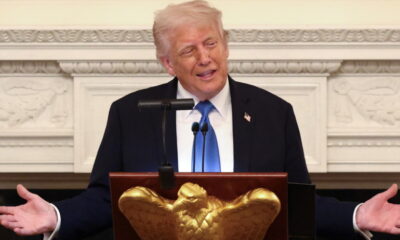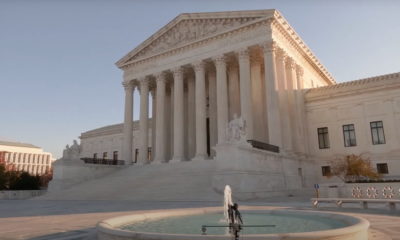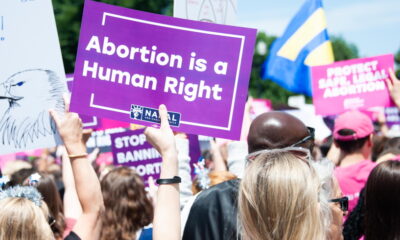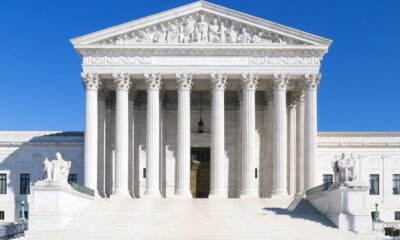Mailbag: “Same Gender Marriage” and “The New Civil Rights Movement”
Today I’m responding to a few emails we’ve recently received. You’re always welcome to email me or leave a comment in the contact section. And please know that I do read all the comments you make on the blog!
Ken writes,
“Please consider using same gender marriage. This term helps outsiders with confusion of sexual orientation, transgender and gender identity. It humanizes us more thanks.”
Thanks, Ken, it’s a valid and interesting point.
Back in February, I explained my choice to stop using the term “gay marriage,” in most situations.
Ideally, I would just use “marriage,” but that has drawbacks, primarily because many people, especially those who arrive here via the Google, search for “gay marriage” a lot. It’s actually one of the top search terms for this site. (Some others the past few weeks? “god hates fags,” “westboro baptist church,” “doma,”fox news,” and “cpac.” Go figure.)
We rely on search engines, along with social media — like Facebook and Twitter — and your kind remembering to visit us a few times a day, to get our information and our message out, and to pick up a few bucks (and I mean a very, very few bucks!) along the way. So, the terms “gay marriage,” “same-sex marriage,” and even “marriage equality” have to take a front seat sometimes, or folks won’t know we’re here.
(While we’re on the topic, forgive me for asking, but I do want you to know that every time you share our work via Twitter and Facebook, it means a great deal to us here. Every re-tweet, every Facebook posting keeps us motivated and re-affirms our efforts. The more you share us with your friends and family and co-workers, the more motivated to keep bringing you our original content we become! And the more folks who join our Facebook page, the more our work gets into the right hands. You have no idea how powerful each of you are.)
I’ve tried to not use the term “gay marriage,” except in an occasional title, to remain as clear as possible. After all, we’re fighting for marriage, not something else.
As far as the term “same gender marriage,” I have no desire to use it any more than I have a desire to use “gay marriage,” or even “same-sex marriage.” While I understand and appreciate the desire to be as accurate and affirming as possible, I’d like to try to use just “marriage.”
But, since that’s not yet possible, I will add “same gender marriage,” to our lexicon, and use it interchangeably, but I won’t revert to it entirely, and I hope some day soon, to be able to stop using modifiers all together.
Thoughts?
# # #
Richard writes a long, very kind email, (Many, many thanks for the kind words! Here’s just part of it,) but has an issue:
“I really love your blog. It manages to be comprehensive and thorough, which takes a lot of energy and dedication. So thanks for that. The only thing that has bugged me since I’ve been reading this blog is the title. I happen to be both Gay and African-American. I’ve made it my business to be out, and to do more than my part to help achieve equality for my fellow queers. I’ve even worked as an organizer on a local LGBT rights campaign…
“Getting to the point, the title of your blog bugs me because it makes me tense. It reminds me of the implicit division between the civil rights movement for LGBT people, and the civil rights movement(s) for people of color. If one is considered new, then the others must be old, right? Why do we need to differentiate these movements? Why can’t we see these seemingly disparate efforts as part of a larger struggle for human rights?”
Well, Richard, here’s the thing.
First, I have a confession: I never really loved the title of the blog. When I started it, just days after Prop 8 passed, I “crowd-sourced” the name, and had my friends on Twitter vote. This was their favorite.
But it is a valid name, and here’s why.
After Prop 8, the term, “new civil rights movement” was everywhere. (So was the phrase, “Is gay the new black,” which I never liked either.)
And we are fighting a new civil rights battle. And we are a movement.
The battle for marriage equality has never really been fought like this before, by so many people before, and so successfully before.
Some members of the black or African-American community take issue with the term, and some claim we’ve co-opted it. I disagree. Here’s someone whose words should ring loud and clear. New Jersey Senator Nia Gill, who happens to be African-American, and who, in December of 2009, during New Jersey’s marriage equality debate, spoke so eloquently of marriage equality, saying,
“When we get to the issue of the constitution […] History shows you could never have contemplated that marriage is between a man and a woman. If you look at the constitution, at its intent, the constitution intended that African-Americans would never be full participants.
“The legislators – the female ones – would not be here, because the constitution never intended for a woman to have the right to vote. And if we looked further at what the constitution intended – as if it is a stagnant body – then we know that disabled people would have no rights, under the equal protection clause, that they have access to public buildings.
“It is a civil rights issue – not because African-Americans own the copyright to civil rights, it is a civil rights issue in the analysis of the equal protection of the fourteenth amendment in the constitution. And maybe some in my community want to hold on to it, because it’s ours. Because our blood has been shed for the right to vote, and we jealously guard that as a re-affirmation of being American. And so we hold it, because no one can do civil rights and have civil rights better than we do. That’s emotional, but it is certainly not an analysis of the constitutional imperatives that face us. It’s a civil rights issue.
“Each side has an emotional story to tell. So I am not involved in that. But I am involved in how does this strip people of the equality under the law. And as an African-American and as a woman who would jealously guard all the civil rights struggles, this is a civil rights struggle on the magnitude and importance for the people who have died for the right to vote, for the people who have died to allow women the right to vote. And if I took a different stand, which would be a more traditional stand, that the community that identifies with me wants me to take, then I will have breached the tradition and the trust of the elders and the ancestors. And so I vote for the equality of marriage because I believe in the constitution.â€
(emphasis mine.)
But I want to stress that I do believe in building coalitions. I also want to point you to two pieces here that say just that. One, by Tanya Domi, titled, “Wisconsin Union Uprising: Why This Is The LGBT Community’s Moment,” and the other, which will be published tomorrow morning, by Jay Morris, titled, “Building Coalitions: Is the Enemy Of My Enemy My Friend?”
I think the black or African-American community has so much to teach us, and I am sad there is often division between our communities. We should rally and fight together, not fight each other.
And I want to stress that the title of the blog was never meant to be about exclusion, it was meant to let people know, because far fewer people two and a half years ago did, that our quest for marriage equality and equality in general is a civil rights issue, and we have every intention of fighting for equality and our civil rights until we get them. Along the way, we all should be fighting for everyone’s civil rights. That’s why I don’t limit my work here to LGBTQ issues.
# # #
So, dear readers and writers, what say you? Please, keep the comments, thoughts, ideas, along with the retweets and Facebook messages coming!

Enjoy this piece?
… then let us make a small request. The New Civil Rights Movement depends on readers like you to meet our ongoing expenses and continue producing quality progressive journalism. Three Silicon Valley giants consume 70 percent of all online advertising dollars, so we need your help to continue doing what we do.
NCRM is independent. You won’t find mainstream media bias here. From unflinching coverage of religious extremism, to spotlighting efforts to roll back our rights, NCRM continues to speak truth to power. America needs independent voices like NCRM to be sure no one is forgotten.
Every reader contribution, whatever the amount, makes a tremendous difference. Help ensure NCRM remains independent long into the future. Support progressive journalism with a one-time contribution to NCRM, or click here to become a subscriber. Thank you. Click here to donate by check.
 |



















